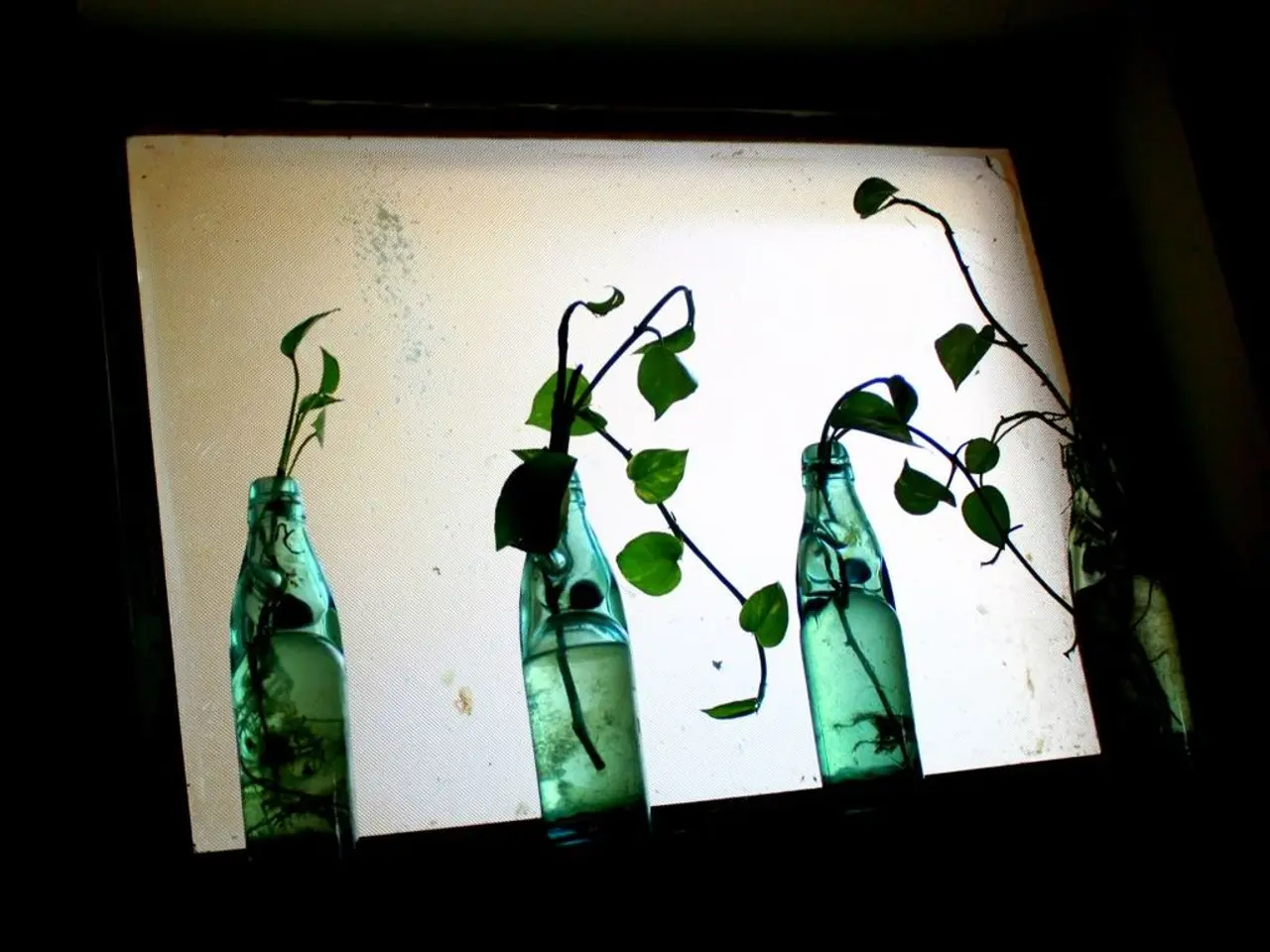Exploring Baking Soda as a Hair Care Option: Safety Measures to Consider
Baking soda, a common household item, has gained popularity as a natural alternative for hair care. However, it's essential to understand that baking soda is not suitable for long-term hair care due to its abrasive composition, high alkalinity, and potential damaging effects on hair and scalp health.
Firstly, baking soda remains extremely alkaline even when diluted in water, with a pH level significantly higher than commercial shampoos. This high pH level opens up the hair cuticles instead of keeping them smooth and closed, which is the natural state that shampoos try to maintain with their slightly acidic pH balance. Open cuticles lead to hair becoming porous, dry, and prone to breakage [1].
Prolonged and repeated use of baking soda washes causes hair to become brittle, porous, and eventually break. Damage accumulates over time, and typical remedies like oil treatments, dietary supplements, or vinegar rinses do not fully reverse the pH damage baking soda causes [1].
The abrasive quality combined with the drying effect of high alkalinity can strip away natural oils, leading to dryness of both hair and scalp. This can cause scalp irritation and increased hair fragility [1][3].
Individuals with high porosity or fine hair are particularly vulnerable to damage from baking soda because their hair cuticles are already prone to moisture loss and damage. Using baking soda in these cases may exacerbate dryness and brittleness [3].
Some people attempt baking soda treatments mixed with acidic components like yogurt to reduce the pH and potential harm. However, even these mixtures still require caution and should not be used frequently or left on the hair for extended periods [3].
In contrast, typical commercial shampoos contain ingredients that moisturize the hair and keep it clean. They are formulated to maintain a slightly acidic pH balance, which helps keep hair cuticles closed, preventing moisture loss and damage [2].
Safer alternatives include pH-balanced shampoos and gentle natural cleansers designed specifically for hair care. Natural ingredients like coconut oil, aloe vera, and jojoba oil can also be found in natural food shops and online [4].
While baking soda might be used occasionally as a clarifying agent, it is not recommended as a long-term hair care solution due to its damaging effects on hair structure, causing dryness, breakage, and scalp irritation due to its harsh alkalinity and abrasiveness.
[1] https://www.ncbi.nlm.nih.gov/pmc/articles/PMC5707687/ [2] https://www.ncbi.nlm.nih.gov/pmc/articles/PMC5707687/ [3] https://www.ncbi.nlm.nih.gov/pmc/articles/PMC5707687/ [4] https://www.healthline.com/health/natural-hair-care#oils-and-butters
- Despite its popularity, baking soda's high alkalinity, even when diluted, makes it unsuitable for long-term hair care, damaging hair and scalp health.
- Prolonged use of baking soda for hair care can lead to brittle, porous, and eventually broken hair, with damage accumulating over time.
- The abrasive quality of baking soda and its drying effects can strip away natural oils, causing hair and scalp dryness, irritation, and increased hair fragility.
- Individuals with high porosity or fine hair are more vulnerable to the damaging effects of baking soda, as their hair cuticles are prone to moisture loss and damage.
- Mixing baking soda with acidic components like yogurt may reduce its pH and potential harm, but these mixtures still require caution and should not be used frequently.
- Commercial shampoos, on the other hand, are formulated to moisturize hair and maintain a slightly acidic pH balance, keeping hair cuticles closed to prevent moisture loss and damage.
- Safer alternatives for hair care include pH-balanced shampoos, gentle natural cleansers, and natural ingredients like coconut oil, aloe vera, and jojoba oil.
- While baking soda might be used occasionally as a clarifying agent, it is not recommended as a long-term hair care solution due to its damaging effects on hair structure.
- Multiple studies, such as those cited from the National Center for Biotechnology Information (NCBI), highlight the potential risks of using baking soda for hair care in the long term [1, 2, 3].
- In the realm of health-and-wellness and skin-care, it's crucial to prioritize our hair care choices, considering not only fashion-and-beauty trends but also the long-term implications for hair and scalp health.
- Mental health conditions like depression, bipolar disorder, and multiple personality disorder (MMD) are often intertwined with physical conditions such as HIV, asthma, Crohn's disease, and eczema, making comprehensive care essential for overall wellness.




